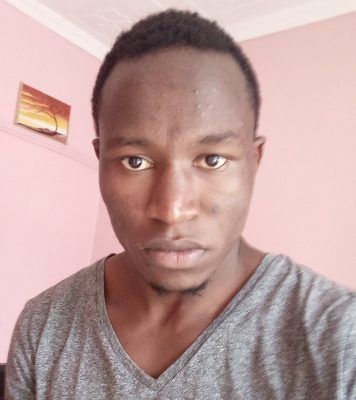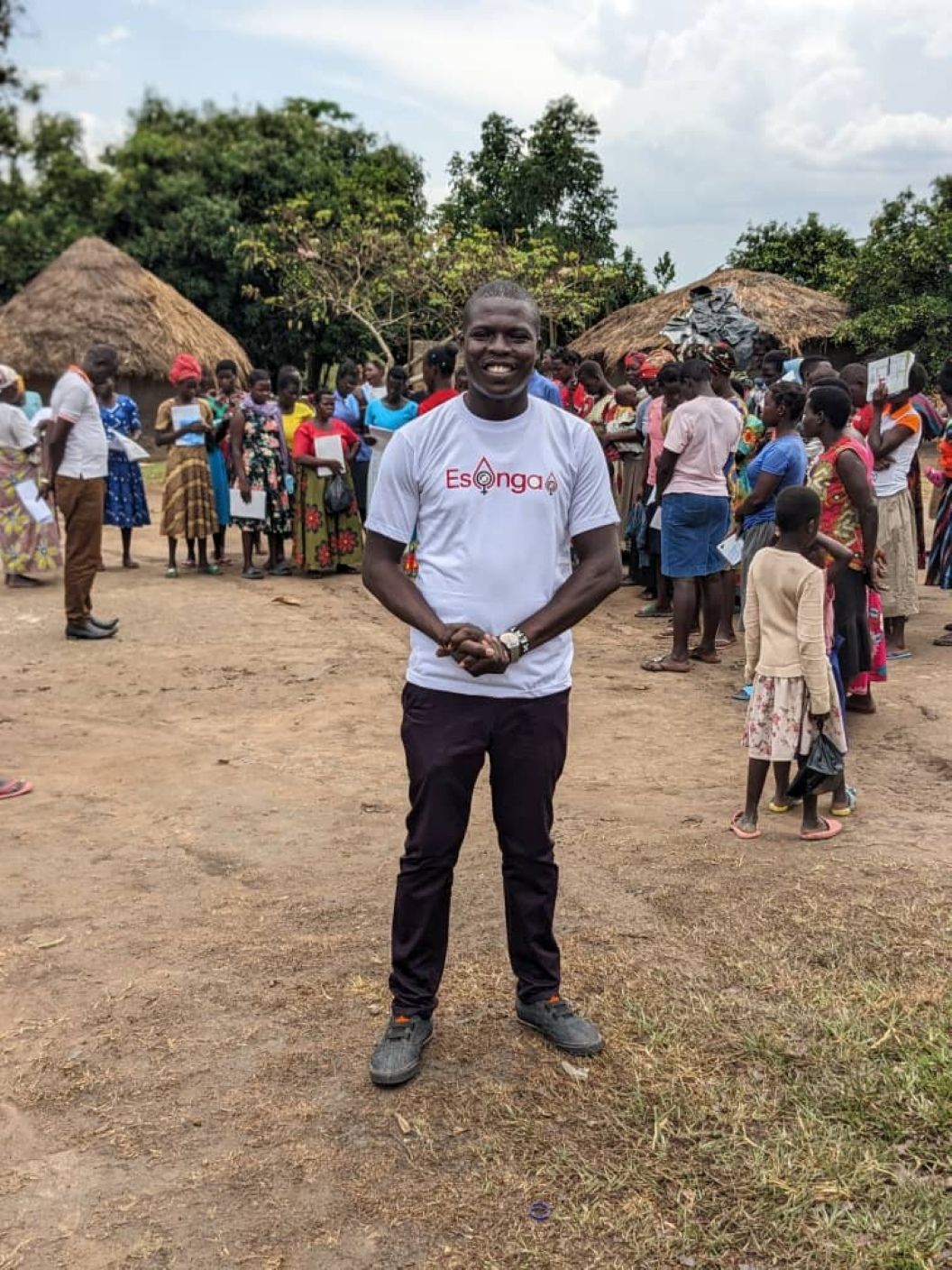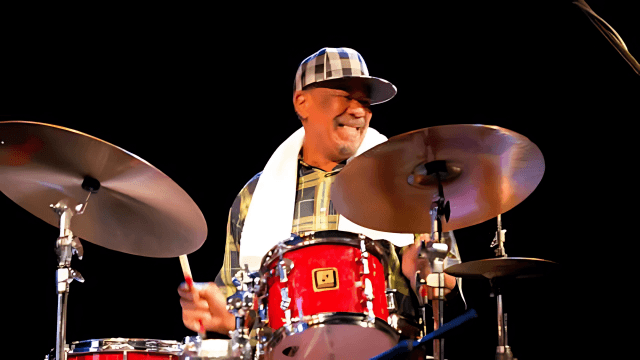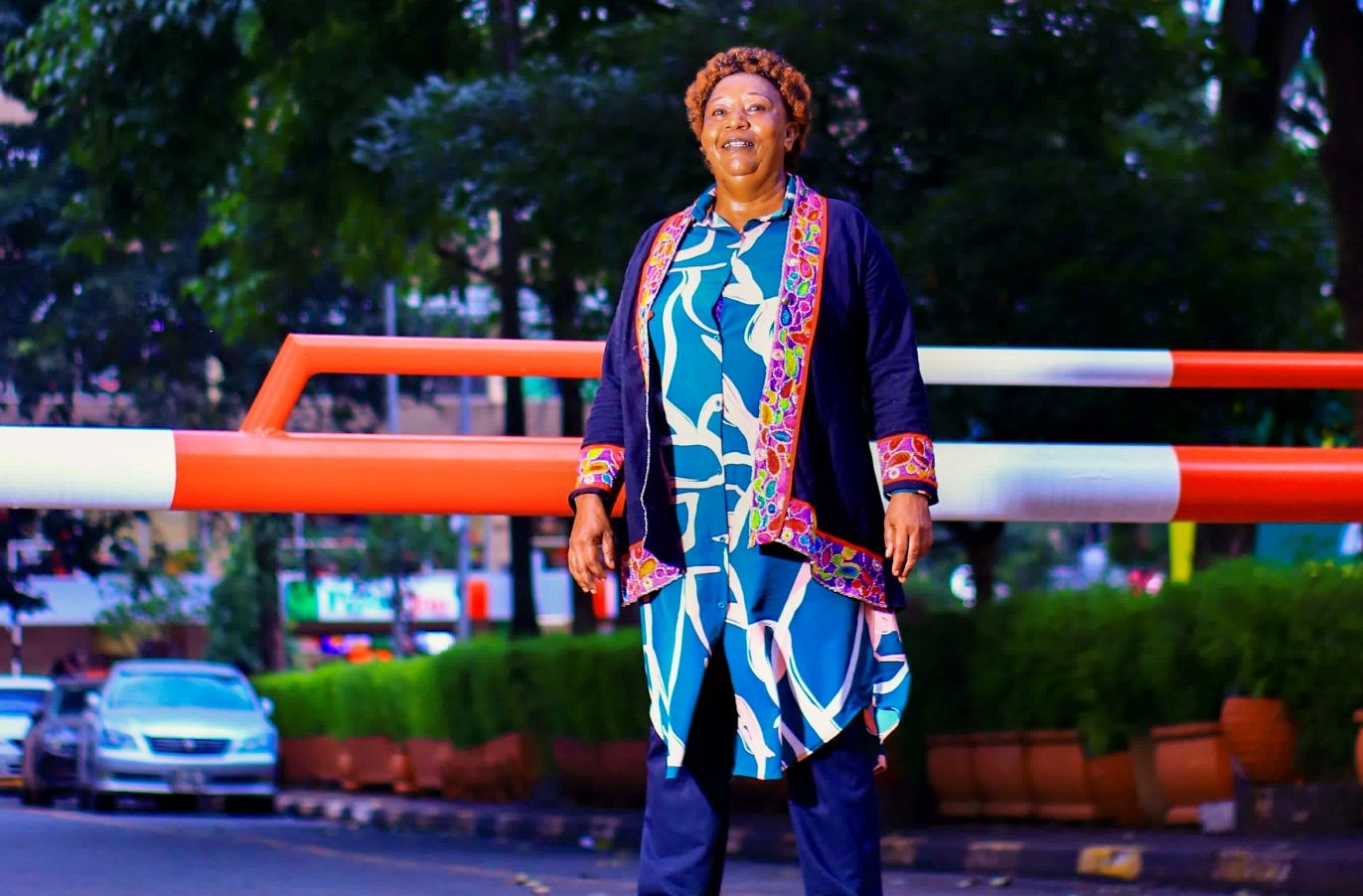[bctt tweet="It’s not what you know that’s important. It is whether you know what you need to know." username="QaziniKenya"]
I was born on the afternoon of 10th August 1996, at the house of a family friend, so my mum tells me.
Part I : Childhood
The story of my birth goes something like this: my mother went to the village market one fine Saturday and returned with more than just supplies. I was born about a hundred yards away from the hospital, but not on the way there.
Back then, the only hospital in Kuresoi did not offer maternity services. That’s why my mum had to dash off to a friend’s house when the 5th born demanded to be let out into the world.
And talking of sturdy African women, my mother is definitely one of them. I was tickled to find out that on the day of my birth, I was simply additional luggage on the way home from the market.
It kind of reminded me of those sturdy Jewish women who stymied efforts of the pharaoh of Egypt to kill their boy children.
I must also mention at this point, very sincerely, that learning the circumstances of my birth was one of the most special gifts I have ever received. Thanks mum! Oh, and for bringing me to this world too, that kind of goes without saying…
A child of violence
Twenty five years later, I am at the point of getting comfortable with putting labels on myself. It helps me keep track of this complex and ever-changing creature out of whose eyes I stare unto the world.
I have spent my whole adulthood running away from the fact that I am a child of violence. Or rather, I have been trying to run. Living through violence of any sort, I have come to learn, is not something you can just shake off.
This has been the hardest label to confront, not least because it was the unknown source of my anxiety and depression for years. It wasn’t until the COVID-19 lockdowns that I slowly started to recognize a worrisome pattern.
After months of soul-searching, I came to the final recognition of wounds I had been keeping hidden, untreated.
In writing this birthday essay, I am hoping to begin the process of rising over it all. I am taking charge of my life by taking charge of my own story.
Living in a tribal conflict zone
Kuresoi was started as a forest resettlement scheme for mainly Kikuyu farmers in the extensive reorganization of Kenya during Kenyatta’s reign.
My unbreakable affection for the village of my birth is partially informed by the fact that it was essentially an island of trees. It was surrounded by deep forests on all sides, with a simple dry-weather road for access.
Skirmishing between the Kikuyu and native Kalenjin Rubwa had started long before I was born. Our parents had colorful stories of the Tribal War of 1992.
In that year, my aunt had been struck on the head by a Rubwa fighter. She still carries that scar. At the first opportunity, she had moved to Nairobi and set herself up knitting sweaters.
From a very young age, we were all well immersed into the politics of a tribal conflict zone. I do remember wanting to learn how to shoot arrows “in readiness”.
The job of protecting the community, we were often told, would soon fall on us kids. And every time another house went up in flames, it was all we wanted to talk about in school.
Other than that, I had a pretty normal childhood. Living with 6 siblings and a cousin, you must learn how to stand up for yourself. We were rowdy and undisciplined and someone was always getting in trouble.
An idyllic couple of years
In all conflicts between the native Rubwa of Kuresoi and the uppity Kikuyu-majority Bantu newcomers, we were attacked and harassed depending on the political mood in faraway Nairobi.
Up until 2005, Kuresoi was a large and peaceful village of about 20,000. Before it had been discontinued in 2002, The East Africa Safari Rally used to pass by the forest dirt roads of Mau Forest.
There had been a big spectacle when one driver crashed his car a few kilometers from the village center. The people of Kuresoi have marked that a haunted spot ever since.
My best friend back then was another short Kisii boy named Chweya. He could run like the wind. He had nurtured his running by chasing dung beetles out in the forest clearings where we grazed.
Back then, our cattle and the cattle of the Rubwa grazed the same pastures. Us herders hunted and roasted wild animals together, played our dung games together.
Heightened tensions
The constitutional amendment of 2005 only served to heighten tensions in Kuresoi. Cattle raids, which had been sporadic before, increased.
Before the YES/NO campaign, cattle raiding had been just another bother of living in the deep interior with the Rubwa. Afterwards, it became part of a terror campaign to kick us usurpers out of their lands.
Every other school holiday, the Rubwa fighters would launch a new campaign of terror. Cattle would be stolen and houses torched.
Every time this happened, a horde of farmers would descend on the village center with their animals and precious belongings. Many families living far from the center and its provisional police station rented a house in town.
Between 2005 and 2008, two serious campaigns took place – one in December 2005 and another in 2006. Each time, the youngest four in our family (myself included) were moved to Nakuru and Elburgon respectively for safekeeping.
IDP in Ndunduri
The contested 2007 election was the undoing of us. Starting on that fateful Sunday the 26th of December, it was made clear that we were persona non grata in Kuresoi.
More violence was rained down on us in those last few weeks than the entire time we were in Kuresoi put together. For men above a certain age, conscription was compulsive. No one enforced it, but everyone wanted to protect their families.
A ragtag army of local farmers, shopkeepers, teachers, etc took shape, but they were untrained and poorly armed. During the worst day of the fighting, 3 people were killed in just a matter of hours. Our ragtag army assured us that they had killed more of the other side’s fighters.
But by mid-January 2008, we were crumbling under the unrelenting campaign of terror from our Rubwa neighbors. Houses were now being torched in broad daylight, and cattle raids became a nightly affair.
An impressive caravan of loaded trucks roared out of Kuresoi, joining other families from other parts of the country who were fleeing similar violence at home.
My family was fortunate to get a place to stay in the aftermath of the violence. Many others were forced into IDP camps.
We got a new home, a new school and new friends. In Ndunduri this time, deep in Central province where Rubwa fighters could not get to us.
Thus began the next chapter of my life.
Also read: Towards Peace in the 2022 Kenya General Elections
Part II : University drop out
For the next big moment of my life, I have to take you to the Technical University of Kenya. That’s where I was to complete my tertiary education before suddenly dropping out at the end of my second year.
But that’s not where that story starts. The story of how I became a university drop-out begins much, much earlier.
Jomo Kenyatta High
I joined Jomo Kenyatta High School in February 2010. It was only a week after our family had just said goodbye to our grandmother.
She was one of countless elders who died in the aftermath of the grand exodus from Kuresoi. It was what our parents (talking amongst themselves) called shock. Such a violent loss of habitat, it turns out, can really affect the minds and bodies of the elderly.
But for the rest of us, life went on. Because, you know, life always goes on.
After four years of disciplined (imposed) learning, I left Jomo Kenyatta with a B+ grade. I was slightly disappointed. I had expected to do much better.
Career choices
After secondary school, the next big thing is deciding what to do with the rest of your life. Me I wanted to buy a computer and just live that writer life.
And in around April, I sat down with my father for a serious talk about my future. Forget university, I told him. I just want to write. My idea was to find a short writing course and graduate after six months to focus on writing.
But writing, so my father said, does not pay. You must have an actual course, and actual job, while you write at your leisure. To me, that sounded like a load of bull.
But I had no option but to follow the laid-out path. So I started stocking up on “university grade” clothes and I studied computer packages.
Coming to Nairobi
Admission to TU-K was an adventure and a half. It was my first time in the big city. Lucky for me, I had family to show me the way.
Unlucky for me, the TU-K does not have sufficient lodgings for all their students. By the time I was registering, all the hostels had already been assigned. It would have to be a private hostel for me.
Someone has got to do something about those exorbitant Nairobi rents. In a room I shared with three other guys at Flame Tree, Ngara, I was charged a monthly rent of 7,000 shillings. That’s 28K a semester on boarding alone.
Food was an even bigger concern. My hostel only served half a breakfast and a third of supper. You had to fill in the blanks yourself. I was also spending too much money on food. I know this because I can still remember my father’s protests every time I asked for additional money.
A few months in, I got the bright idea to move out of the city. My best friend from high school was going to Nairobi University Kabete Campus and rents in Dumbu-ini cost a mere 3,000. This life, now I could afford!
Smaller burdens and HELB
I could only just about afford it. Smaller burdens are not that much easier to carry, it turns out. And even though I only paid half of that, money was a constant cause of anxiety throughout my university days.
In a bid to give us the best possible Design education they could, the Technical University had decided to make the course as hands-on as possible. With about eight units in the second year, this meant a project every other week.
All assignments now required a computer to complete, so receiving my HELB funds was a great help. I could finally afford the badly needed laptop computer. And an acoustic guitar too, because, why not?
I would end up selling that guitar to pay rent, but that’s getting ahead of the story.
Trouble fitting in
University was the place where I first realized just how poor I was. My specially purchased “university grade” clothes made me feel small and insignificant.
To avoid overspending, I had to adhere to a very strict budget. Most days, lunch was always a humble affair of coffee and a bun. And I had to get creative every time a classmate asked me to spot her lunch because I simply couldn’t afford it.
I remember this one time when we had a group weekend practical to interview designers along Ng’ong’ Road. There would have been too much moving around in matatus, but one group member offered to drive us around in his car. It made the day a lot easier.
That car had great music, I remember. But what I remember most clearly, what I might never forget, was the song that was playing as I alighted at The Junction to take the 105 to Ndumbu-ini.
Dropping out
I was completely unprepared for any of it. For my coin-counting tendencies, I missed out on everything that makes university fun.
At least I was doing well in class.
The biggest shock of them all was when the unit professor came in with a list of all those who hadn’t cleared their fees. We would not be allowed to sit the exam we had just been revising for.
Downstairs in the lobby, I thought about how a few weeks earlier, my mother had called to say that father, a teacher, was now hawking VIM in Ndunduri. My education had become so expensive that his salary wasn’t enough anymore.
All that struggle for something I didn’t really want in the first place. All that stress for a career I was planning to forfeit for writing as soon as I could.
On the matatu ride home after submitting my letter of deferment, I felt calm and relaxed. My life was mine again and I could live it any way I pleased.
Lessons in failure
I had learned to print t-shirts with stencils while at TU-K. That and an ill-fated tubers grocery had been my feeble attempts at doing business to support myself in school.
After dropping out, I could now focus fully on my t-shirt printing business. In my mind, it was going to take over the world.
Three months later, my laptop was stolen, and that business was effectively dead.
Life was really tough for the next couple of months. For my 20th birthday, I moved my belongings from my 2,500 shillings a month room to my friend’s place. I could no longer afford the rent.
And then, in the nick of time after a few months of despondency, I discovered an opportunity in academic writing. To interview for the job, I had to submit a 550-word essay. If I passed, I would get 500 bob for 2 pages of academic work.
That M-Pesa message was like a drop of water to a person dying of thirst. Just like that, I was now receiving paid lessons on professional writing.
Even an optimist like me could not have imagined that making money with my writing could be as simple as academic writing had made it. In just a month, I had bought a refurbished second-hand desktop computer.
Money was easy, but life was still hard. I didn’t know it at the time, but I was due for another tough couple of years.
Part III : Starting Up again
If there is something I can confidently say at this point in my life, it’s that I have failed A LOT. So obviously, I have learnt an awful lot too.
I am back at home now – I have been living in my old thingira for the last one year. Yeah, I am THAT guy now. If you had told me that I would ever give up on the landlord life in 2019, I would have been too busy to laugh at your face.
Moving up in life
After a misadventure with script writing occasioned by a case of How I Met Your Mother fever, I found safe landing with a ghostwriting gig in a Canadian firm. For the next one year, I got paid in USD.
Life got a lot easier, even fun, while I moved up the perking order to 0.12$ per word. By now, I could do 20,000 words a week on a good month.
Money was no longer the problem; the problem was how to spend it. And for a poor boy like me, that problem was really no problem. I was still living from paycheck to paycheck. And I didn’t have much time to puzzle this out, because 3,000 words a day is no joke.
I didn’t mind working late into the night in the least. As a writer, any time you can write is a good time to write. Night, day, dawn, dusk, midday, and midnight – all are just positions of the sun.
The only thing I minded was the constant feeling that I was missing out on life.
I am a fool in love
This was also the time when I got my first serious girlfriend. Her name was Mary, and her smile stopped my world on its tracks. But it was her drama that would be my undoing.
In the year and a half since we parted ways, I have literally kicked myself on the shin many times just thinking of the fool I was back then. In just a few weeks of meeting her, I was madly in love. In just a few months, we had moved in together.
Not because we were so madly in love, but because of her drama. But the drama had been caused by our love, so maybe it was love after all.
What you don’t see when you move in with a girl is the extra costs you incur around the house. You don’t get to eat at your cheapest pleasure anymore. It has to be home cooked - preferably with meat. And at 0.12$ a word, you can afford preferably.
And financially illiterate
I can laugh at myself now – I know the mistakes I made. From the onset, I had zero idea of personal financial management. The only financial planning tool I used was a budget to help me to better spend my money.
The only savings tool I used was M-Pesa, and not even M-Shwari. I still nursed the dream of starting my own business, but life was always in the way.
In my financially unenlightened mind, I could only look at what I was making at the moment. The concept of paying myself first, and that of compounding interest on savings, were all lost on me.
As long as I was always working and there was money to look forward to in a couple of weeks, my financial anxiety was contained.
Mixing money with love
A fool in love who is also bad with money should not be allowed to operate a bank account. It will always be empty anyways.
At least, mine always was. As soon as those dollars landed on my Equity account, they would be transferred to my M-Pesa account. Equity’s Eazzy Net Banking made this remote, so I never had need to step inside a banking hall. Well, unless there was a problem with my account.
A part of me, deep inside, was constantly alarmed at my overall shaky financial situation. I filled a few pages of diary with my big dreams of financial freedom.
Jay Z’s song The Story of OJ has always been a favorite. That line: /Financial Freedom my only hope/ Fuck livin’ rich and dyin’ broke/ powered my early 20s.
I wanted more than anything to live above money; I just didn’t have an inkling of how to accomplish it. The struggle became how I might actually get around to reaching those riches.
In the meantime, my live-in girlfriend falls pregnant – inevitable. Starting a family demands financially stability, and I didn’t have it. I was still counting on a few more years to figure out this charade.
Life-changing disaster
Even though I had not quite figured out how to take care of myself, I was willing to give fatherhood a brave try. To my heartbreak, my son Orion lived only one week.
COVID-19 travel restrictions meant that I never got to hold him. When my landlord called me a week later to demand I vacate his house, I didn’t have any more fight left in me.
And so, for my 24th, I became THAT guy who still lived with his parents in his twenties. Honestly, it has been way less terrible that I expected.
Sometimes you have to fall down to get to where you really belong. For me, it was back to that point when I sat my father down and asked him to support my dreams.
Except that this time around, I was not demanding for support. All I needed was the space to set myself up again.
Lessons – finally!
As for my pursuit of financial freedom, the struggle continues.
This year, I finally received the financial education I always lacked. A single line of George S. Classon’s The Richest Man in Babylon and I felt my financial illiteracy floating away in the wind.
These 7 cures for a lean purse resonated with me in a very major way. A little disappointed I was though, that I couldn’t have been a natural and figured it out naturally.
I was also puzzled that in 4 years of constant online research, I had not happened upon this information. The biggest information gap that exists is the one between what you know and what you need to know.
For my 25th birthday, I am planning to gift myself a book manuscript. It is called “Keys to Financial Freedom” and it will be my first published book.
After one year of soul searching, I have realized that all I’d needed to avoid that shameful financial disaster was financial education. So I can find no better mission than to help those coming up behind me with the Keys to Financial Freedom.
Starting up again
My best accomplishment to date is registering The Kiongo Writing Services as a tool for this new leg of my writing career. I am back at the drawing board, and this time I know not to let anyone talk me out of pursuing my dreams.
In hindsight, the last five years of my life have been nothing but a massive lesson about life. I have learned to not fear failure. I now strive to keep going even after falling down.
When every failure is an opportunity to learn, you can only fail upwards. Stymied by financial illiteracy in 2020, I have been discovering opportunities in financial education all of 2021.
I strive to find the good in every adversity.
I am now an amateur historian. With the Africa Rising column at Qazini.com and an upcoming Ethiopiology project, the secrets of Africa’s unrecorded past have been unraveling daily.
It is my strong belief today that history is an important part of a society’s socio-cultural identity. My study into the past of Africa has filled me with hope for the future.
Also read: Failure Shapes Us in Ways That Success Never Will
Lessons I have learned
In 25 years, I have learned a few important things about life;
- No adversity lasts for long.
- Good times are not permanent.
- A life without purpose is not a life worth living.
- Relationships will either build you or destroy you – take care!
- When shit hits the fan, all you have is yourself – and family
- It’s not what you know that’s important. It is whether you know what you need to know.





